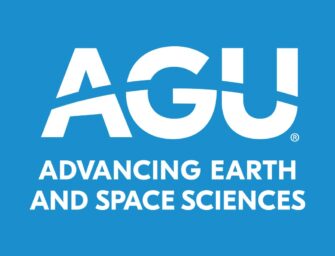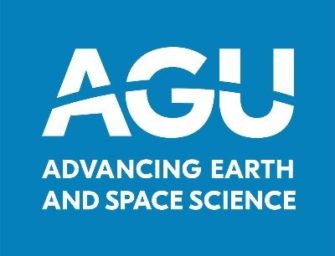AGU Board of Directors Meeting, April 2024
In April 2024, the AGU Board of Directors gathered in Hoboken, NJ to discuss vital topics shaping the organization’s future. The meeting revolved around four key themes: adapting to change, fostering relationships, defining the role of science, and our vision of the future.
Framed by a quote from American philosopher Eric Hoffer: “In a world of change, the learners shall inherit the earth, while the learned shall find themselves perfectly suited for a world that no longer exists,” the agenda featured:
- Biannual discussion with Wiley global leadership about the future of publishing;
- Current and new AGU publishing projects;
- Generative discussion on the article “One Earth, Many Futures, No Destination” (Mike Hulme, 2020);
- Leadership development discussion on the article “Three Pillars That Forward Governance” (ASAE, Mark Engle, Debbie Trueblood, and Erin Vollard, 2024);
- Guest lecture by Dr. Stephen Hammer, founding CEO of the New York Climate Exchange;
- Update on AGU’s Ethical Framework for Climate Intervention and establishment of a proactive ethics culture in the context of AGU’s global engagement;
- Discussion on the ongoing membership research project and next steps.
Adapting to Changes
The meeting began with an acknowledgment of the rapidly changing landscape facing AGU and the broader scientific community. Climate change, technological advancements in publishing like Curvenote, and the rise of artificial intelligence were highlighted as key drivers of change.
When it came to emerging communication technology, Steve Hauck’s question captured a central challenge: “How do we effectively communicate our science, ensuring it is more understandable and useful, not just available?” As chair of the AGU Publications Committee, Steve attended the parts of the meeting dedicated to publishing.
I emphasized the imperative of solution science in my own mini-lecture: “The world is literally on fire and writing papers that sit behind paywalls won’t stop climate change. We as scientists need to adapt, to make connections with people who can translate research into meaningful actions that actually help the world.”
Relationship Building
Trust emerged as a critical objective for the Board, emphasizing the importance of fostering strong relationships with the Council, the members, and outside groups.
Our discussion highlighted the need to diversify the voices at our table to include perspectives from outside the U.S. and from different areas of research like economics or the social sciences. We recognized there isn’t one ‘correct’ approach, including in regard to how AGU as an organization should approach complex justice issues. International Secretary Ligia Pérez-Cruz shared: “I think we can take the risk and the opportunity, and mitigate what happens after that.”
In addition, we explored practical steps to strengthen relationships across AGU. This included aligning open science with profit motives in partnerships with Wiley, improving communication with the Council to ensure their voices are heard, and exploring opportunities for collaboration between science, policy, and entrepreneurship, such as through initiatives like the New York Climate Exchange. Strengthening global relationships with geoscience societies, associations and institutions were also highlighted as crucial for addressing societal challenges effectively.
Defining the Role of Science
At the core of AGU’s mission lies the recognition that scientific progress is most impactful when informed by diverse perspectives and disciplines.
The Earth and space sciences are not the “be-all-end-all” and cannot tackle all the complex challenges of our time alone, including climate change. Collaboration across fields, including economics and social sciences, is vital for transformative change and addressing pressing societal issues.
Vision of the Future
The Board meeting concluded with a generative discussion of an article by Mike Hulme, Professor of Human Geography at Cambridge University: “One Earth, Many Futures, No Destination.” Board members and staff delved into the four mindsets outlined: eco-modernism, ecological civilization, eco-socialist critique of capitalism, and inner spiritual transformation. Collaboratively, we crafted headlines to guide further discussion, fostering an atmosphere of dynamic exchange and exploration.
The absence of participation in the “ecological civilization” group served as a stark reminder of the challenges ahead and Board members’ fear of seeing the world move backward. Reflecting on a quote from AGU President Lisa J. Graumlich, “When we can’t imagine a future we want, the worst comes true: The world we fear,” we recognized the critical importance of AGU leading by example.
Despite obstacles on the horizon, the Board remains steadfastly committed to AGU’s vision of a thriving, sustainable and equitable future, supported by scientific discovery, innovation, and action.
###
Dr. Tanya Harrison is a member of the 2023-2024 Board of Directors for AGU.




